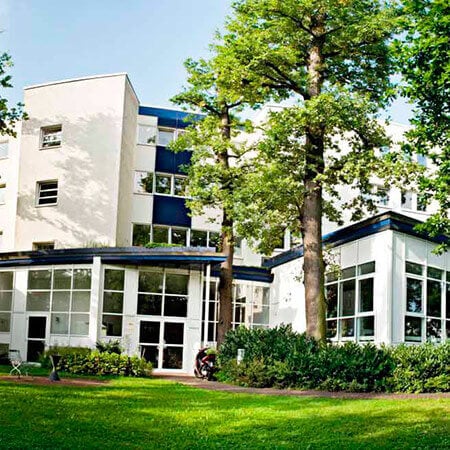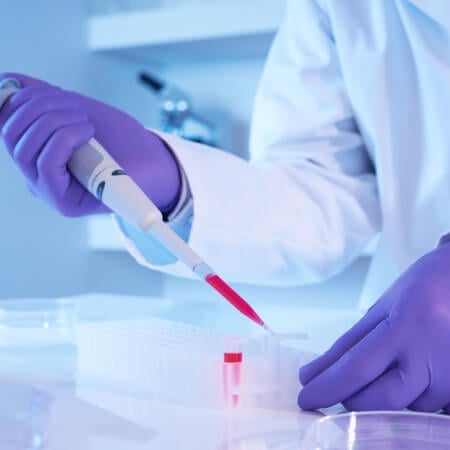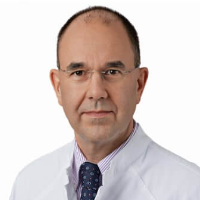Chronic Pancreatitis — Stem Cell Therapy for Pancreatitis: treatment in the Best Hospitals of Germany
Treatment prices are regulated by national law of the corresponding countries, but can also include additional hospital coefficients. In order to receive the individual cost calculation, please send us the request and medical records.

Department of Alternative Medicine
The Department of Alternative Medicine specializes in the treatment of various types of cancer and chronic diseases using the methods of integrative medicine. The department belongs to few medical facilities in Germany, which offer individual treatment regimens using biological and integrative techniques. The department has state-of-the-art medical technologies, as well as a multidisciplinary team of competent specialists in various medical fields, including therapists, oncologists, gynecologists, urologists, orthopedists, nephrologists, surgeons, cardiologists and others. In addition, the department has a pleasant and friendly atmosphere.


Department of Regenerative Medicine
The Department of Regenerative Medicine offers all modern methods of stem cell therapy. The medical facility performs stem cell therapy based on the classical protocol, stem cell secretome (SCS) treatment, bone marrow concentrate (BMC) therapy, mesenchymal stem cell therapy, and PRP therapy that involves the injection of platelet-rich plasma. It should be noted that the medical facility has become a pioneer in Europe in the field of therapy with autologous mesenchymal stem cell secretome (SCS), the secretory products of stem cells. The department's medical team diagnoses and treats a wide range of diseases such as multiple sclerosis, rheumatoid arthritis, amyotrophic lateral sclerosis, Parkinson's disease, osteoarthrosis, knee injuries, spinal cord injuries, stroke, xerostomia, Lyme disease, urinary incontinence, and erectile dysfunction. The department also offers cell therapy for rejuvenation and hair loss treatment. The department has well-equipped diagnostic rooms and laboratories where biochemical, genetic, and imaging tests are performed. The specialists take time to study the patient's medical history and perform a comprehensive diagnosis, which helps to develop the most effective treatment regimen. The department's physicians work with innovative treatment methods that have passed all stages of clinical trials, proving their high efficiency and safety. The medical facility is the first cell therapy center in Europe to be certified according to German and European standards.

Pancreatitis is an inflammation of the pancreas. It can be acute and chronic. Acute pancreatitis leads to fast and chronic pancreatitis leads to gradual destruction of the pancreas. Stem cells (SCs) are increasingly being used to repair the organ. They help to delay or prevent exocrine pancreatic insufficiency, which causes digestive problems, as well as to reduce the risk or partially compensate for endocrine insufficiency, which becomes the cause of pancreatogenic diabetes mellitus. You can undergo stem cell treatment for pancreatitis in Germany by making an appointment through Booking Health.
Content
How stem cells work
A peculiarity of the pancreas is that it has no stem cells of its own. Those that are found in small quantities come here from the bone marrow and bile ducts.
Therefore, the natural potential of the pancreas to regenerate is very limited. At the same time, this feature of the organ creates prerequisites for successful treatment by cell therapy methods. Treatment of pancreatitis with stem cells helps to achieve excellent results, improving the function of the pancreas and achieving its partial recovery.
Even when administered intravenously, SCs themselves migrate into the damaged organ. They penetrate much better in the inflamed pancreas. Therefore, in the acute phase of inflammation SCs can be injected into a peripheral vein, while the repair of a previously damaged organ (in case of pancreatic excretory insufficiency) may require a radiosurgical procedure to inject SCs into the pancreatic arteries or direct injection of SCs into the pancreatic parenchyma.
In acute pancreatitis, SCs can have a clinical effect even without accumulating in pancreatic tissues. They work by reducing the severity of the systemic inflammatory response and improving hemodynamic (blood circulation) parameters.
Another advantage of cell therapy is the ability to repair other organs damaged by pancreatitis. This disease often shows systemic aggression. When enzymes from destroyed pancreatic cells enter the bloodstream, they often damage the lungs, intestines, and liver. The SCs themselves find the damaged areas and augment the repair of these organs.
What types of pancreatitis can be treated with SCs
For a long time, scientists' interests were focused solely on the possibility of restoring pancreatic beta cells, which produce insulin. But in the last few years, they have also been used to treat pancreatitis, more often acute, less often – chronic. These diseases are often interrelated. Chronic pancreatitis can be the outcome of acute pancreatitis. In turn, the initially chronic form of the disease often exacerbates, and these exacerbations are similar to acute pancreatitis.
It has been established that mesenchymal SCs have a significant anti-inflammatory effect by reducing the expression of tumor necrosis factor-alpha, interleukins 1 and 6. It is assumed that this is the main mechanism by which SCs reduce the symptoms of pancreatitis and prevent necrosis (die-off) of pancreatic tissues. The best effect is achieved when SCs are administered immediately after the onset of acute pancreatitis or exacerbation of chronic pancreatitis, while starting treatment after several days may impair therapeutic results.
SCs are also successfully used in exocrine pancreatic insufficiency (impaired enzyme production) of any origin: developed against the background of acute, chronic pancreatitis or other diseases such as cystic fibrosis or pancreatic adenocarcinoma. The use of SC reduces the need for enzyme replacement therapy and reduces symptoms, improving the quality of life.
Where to receive treatment
You can undergo stem cell therapy for pancreatitis in Germany. Although the treatment method is not yet standard, it is already being used in specialized German clinics with good results.
You can check prices and choose a suitable hospital on the Booking Health website. We will help you to find a medical center specializing in cell therapy. The average cost of treatment when making an appointment through our service will be lower for you due to the exclusion of additional fees for foreign patients.
Authors:
The article was edited by medical experts, board certified doctors Dr. Nadezhda Ivanisova and Dr. Vadim Zhiliuk. For the treatment of the conditions referred to in the article, you must consult a doctor; the information in the article is not intended for self-medication!
Our editorial policy, which details our commitment to accuracy and transparency, is available here. Click this link to review our policies.
Sources:

